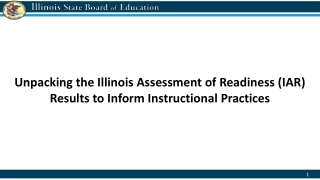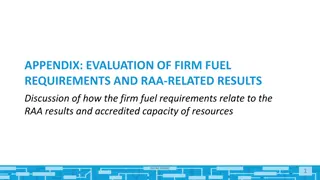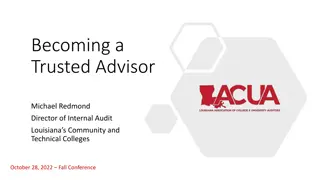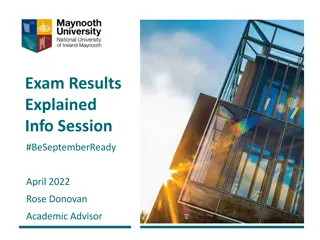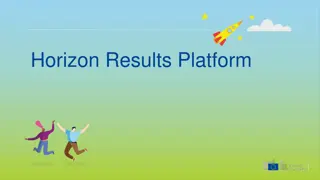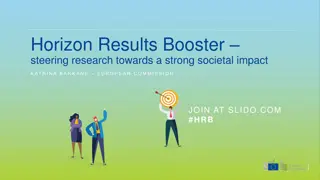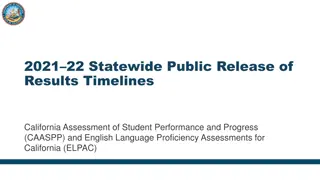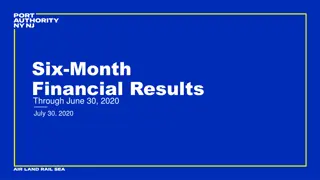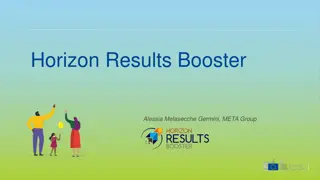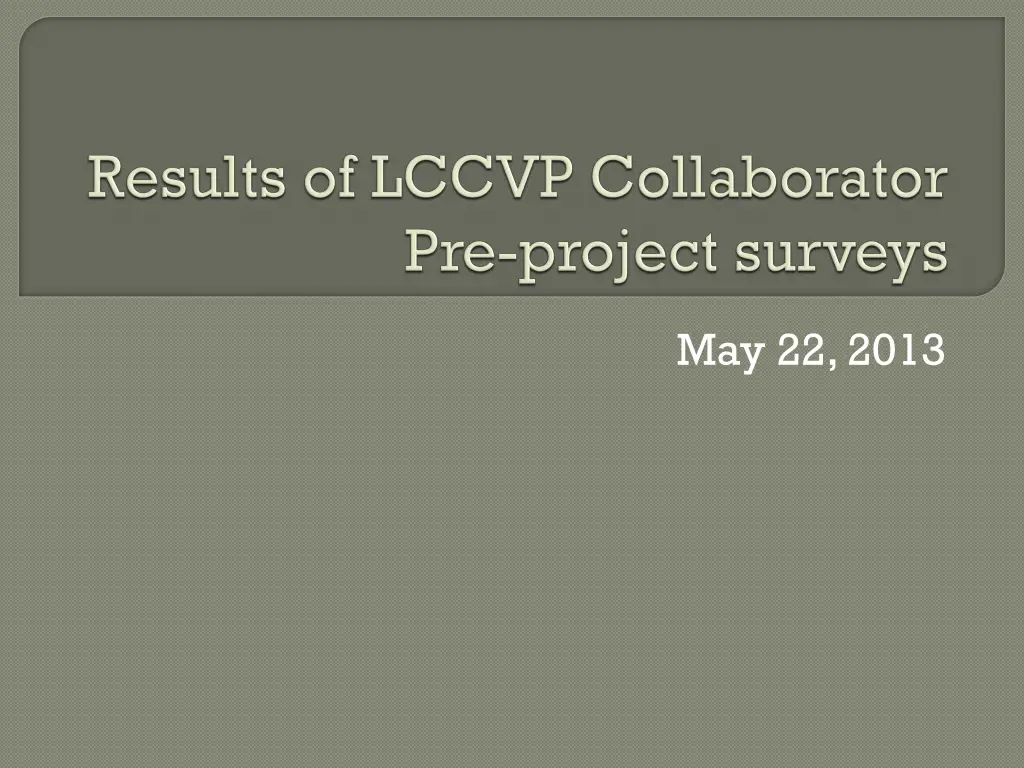
Managing Environmental Change: Knowledge, Approach, and Adaptation Options
Explore the levels of knowledge about past and projected climate and land use change, established approaches to managing change, and current adaptation options with associated barriers in various national parks. Discover insights on collaboration, resilience, and barriers to adaptive management in environmental conservation efforts.
Download Presentation

Please find below an Image/Link to download the presentation.
The content on the website is provided AS IS for your information and personal use only. It may not be sold, licensed, or shared on other websites without obtaining consent from the author. If you encounter any issues during the download, it is possible that the publisher has removed the file from their server.
You are allowed to download the files provided on this website for personal or commercial use, subject to the condition that they are used lawfully. All files are the property of their respective owners.
The content on the website is provided AS IS for your information and personal use only. It may not be sold, licensed, or shared on other websites without obtaining consent from the author.
E N D
Presentation Transcript
Yellowstone National Park Rocky Mountain National Park GYCC Whitebark Pine Subcommittee Great Smoky Mountains National Park Appalachian Highlands I&M Delaware Water Gap Shenandoah National Park
Q#1: Level of knowledge about past and projected climate and land use change? Level of Knowledge of past climate and land use change Level of Knowledge of future climate and land use change 3 # of Responses # of Responses 3 2 2 1 1 0 0 Limited Moderate Knowledge level Extensive Limited Moderate Knowledge level Extensive Comments by collaborators: We have very little knowledge of past climate change and land use surrounding [our unit]. Significant opportunities exist to have explicit examples of the interactions between climate change and land use change as we look towards the future. PALMS project very useful; Climate Wizard tool used sporadically
Q#2: Established or systematic approach to managing under change? Established approach to managing under change? 3 # of Responses 2 1 0 No Somewhat Response Yes No s: We are currently managing the same as in the past Managers are cognizant of potential impacts, but not ready to commit to altering management practices given uncertainties, and the logistical implications of large-scale alterations in a cumbersome bureaucracy. Somewhat s: Assessing likely impacts of climate change in NEPA analyses Sound Science -> Adaptive Management -> Managing for Resilience
Q#3: What adaptation options do you currently use? Any barriers to their use? 5 of 6 have identified priority resources to manage under change 4 of 6 have no identified adaptation options, or are still considering available options **************************************************************** YCR: Likely will use limited to no intervention in Wilderness areas (95% of park), but will consider active intervention and cooperative planning for border areas (Barriers: land use outside park) DEWA: Park has identified connectivity corridors between Park and other protected lands (Barriers: funding) GSMNP: Encouraging and supporting new research (Barriers: funding) APP I&M: Besides documenting current conditions and conserving genetic material, I don t know that there s much we can do but watch as these communities disappear. (Barriers: lack of good options)
Q4: What data and tools would be most useful? Most useful data and tools? 6 # of Responses 5 4 Down-scaled data How-to Guides User-friendly Realistic Approaches Tools Everybody needs down-scaled data 4 of 6 said data needs to be at < 1km2 scale; prefer 250M 1 of 6 said data should be at annual, not decadal, scale 3 of 6 expressed desire for data regarding seasonal variation (esp with regard to precipitation)
Q5: What would improve your ability to manage under change? YCR: Cooperative approaches with neighboring jurisdictions; Perhaps the most difficult decision managers will face is whether to intervene with active management GSMNP: Policy direction about what actions are appropriate with the NPS framework active versus passive management; the best scales for vulnerability assessment ROMO: Better information and realistic approaches to begin and enhance scenario planning efforts that lead to true adaptive management approaches that can be continually evaluated over time, and which are realistic and can be funded. DEWA: We don t know what resources or species we can likely maintain, and which are very likely be lost causes (hemlock? brook trout?). We don t have species and/or habitat distribution models for the area. DEWA needs a CC vulnerability assessment and adaptation plan. There are too many unknowns to help give us a place to start.
Relevance of data generated by this project to managers Q6&7: Current access to and relevance of data that will be produced by this project? 5 # of Responses 4 3 2 In general, the metrics appear to be conceptually in alignment with management issues; however, our experience suggests that the data sets are at a scale not commensurate with protected area-level management issues, as it relates to actionable items. 1 0 Low Medium High Strength of response Current availability to collaborators of data to be generated by this project 5 # of Reponses 4 3 2 1 0 Low Medium High Current availability
This assessment is a first of its kind for GRSM. It will be important and help us into the future understand changes to the vegetation communities from possible climate change. We value this opportunity. An assessment of this nature will provide important information at a scale we hope will help answer what s happened, what s happening, and what future changes in vegetation communities can be expected.



